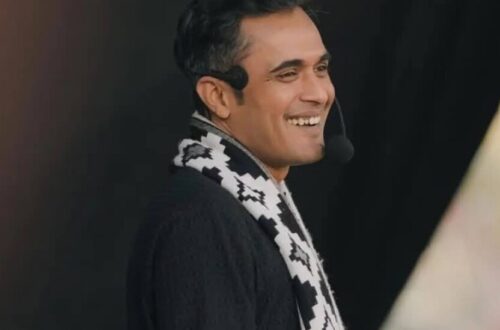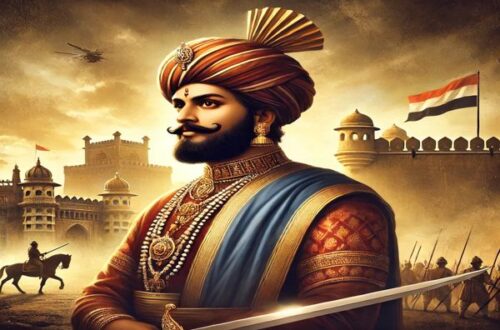Sonam Wangchuk — The Real-Life Phunsukh Wangdu Who Changed Ladakh’s Future
Introduction
In the high-altitude desert of Ladakh, where the Himalayas touch the sky, one man has redefined innovation, education, and sustainability.
Sonam Wangchuk — the engineer, educator, and environmentalist — has become a global symbol of change, known for transforming challenges into opportunities.
From founding SECMOL to inventing the Ice Stupa and inspiring the film 3 Idiots, Wangchuk’s life is a story of resilience, simplicity, and purpose.
Facts About Sonam Wangchuk
| Detail | Information |
|---|---|
| Full Name | Sonam Wangchuk |
| Date of Birth | 1 September 1966 |
| Place of Birth | Uleytokpo village (near Alchi), Leh, Ladakh, India |
| Parents | Father: Sonam Wangyal (Politician) Mother: Tsering Wangmo |
| Marital Status | Married |
| Spouse | Gitanjali J. Angmo |
| Education | B.Tech in Mechanical Engineering (NIT Srinagar) Earthen Architecture (CRATerre, France) |
| Organizations Founded | SECMOL (Students’ Educational and Cultural Movement of Ladakh) HIAL (Himalayan Institute of Alternatives, Ladakh) |
| Known As | “The Real-Life Phunsukh Wangdu” from 3 Idiots |
| Major Awards | Ramon Magsaysay Award (2018) Rolex Award for Enterprise (2016) Global Award for Sustainable Architecture (2017) |
| Nationality | Indian |
| Languages | Ladakhi, Hindi, English, French |
Early Life and Education
Born on 1st September 1966 in Uleytokpo, a small village near Alchi, Leh, Sonam Wangchuk spent his childhood far from modern conveniences.
His early years were shaped by his mother, who taught him basic literacy at home in their native language, as there was no local school.
In 1975, the family moved to Srinagar, where Sonam attended school for the first time. The shift was challenging — he struggled with language barriers and cultural differences, but these very struggles ignited his lifelong quest to reform education.
He pursued a B.Tech in Mechanical Engineering from NIT Srinagar. Later, his interest in eco-friendly design led him to France, where he studied Earthen Architecture at CRATerre — an experience that laid the foundation for his environmental innovations.

Reforming Education — The Birth of SECMOL
After completing his studies, Sonam realized that Ladakh’s education system was broken — it alienated students instead of empowering them.
In 1988, he founded SECMOL (Students’ Educational and Cultural Movement of Ladakh), an organization that redefined the region’s schooling approach.
Instead of rote learning, SECMOL introduced practical, locally relevant education, blending modern techniques with Ladakh’s cultural and environmental realities.
Key initiatives included:
- Training teachers in Ladakhi language and culture.
- Promoting solar-powered, sustainable campuses.
- Launching Operation New Hope — a collaboration between communities, teachers, and government schools to improve rural education.
SECMOL’s success transformed thousands of young lives and became a model of community-driven learning.
Innovation and Sustainability — The Ice Stupa Revolution
One of Sonam Wangchuk’s most remarkable contributions is the Ice Stupa — an artificial glacier that stores water during winter and slowly melts during summer.
This innovation was born out of necessity. Ladakh’s farmers faced severe water scarcity every spring, as natural glaciers melted too late.
The Ice Stupa changed everything — it ensured a steady water supply and turned barren land green.
Today, Ice Stupas are built not just in Ladakh, but in other cold regions across the Himalayas, Europe, and South America — proving that local ideas can solve global problems.
The Himalayan Institute of Alternatives (HIAL)
In his pursuit to make education more experiential, Sonam founded the Himalayan Institute of Alternatives, Ladakh (HIAL).
Unlike traditional universities, HIAL’s motto is “Learning by Doing.”
Students here learn through real-world projects — building eco-homes, designing renewable systems, and conducting sustainability research.
HIAL aims to become a global hub for alternative education, climate adaptation, and Himalayan innovation.
Activism and Social Movements
Beyond innovation, Sonam Wangchuk is an outspoken environmental and social activist.
He has consistently advocated for:
- Sixth Schedule status for Ladakh (to protect its environment and tribal rights).
- Sustainable tourism and responsible development.
- Climate awareness and glacier conservation.
In 2025, he went on a hunger strike demanding statehood and constitutional protection for Ladakh’s fragile ecosystem. His peaceful protest drew national attention and inspired a wave of public support.
Challenges and Controversies
Like every reformer, Sonam Wangchuk’s journey has not been without obstacles.
- In September 2025, he was arrested during protests in Ladakh, sparking global concern.
- The Indian Home Ministry revoked SECMOL’s FCRA license, preventing it from receiving foreign aid.
- Some authorities accused him of political agitation, though his actions remained non-violent and rooted in Gandhian philosophy.
Despite these setbacks, his conviction in the power of peace and education remains unshaken.
🌏 Legacy and Global Impact
Sonam Wangchuk’s impact goes far beyond Ladakh.
His life demonstrates how innovation, empathy, and education can reshape entire societies.
From Ice Stupas to solar schools, and from grassroots activism to global recognition, his journey continues to inspire millions.
The world knows him as the “Real-Life Phunsukh Wangdu,” but his true identity lies in being a teacher, a reformer, and a guardian of the mountains.
✍️ Conclusion
Sonam Wangchuk is proof that one person’s vision can change the destiny of an entire region.
His work bridges tradition and modernity, science and simplicity, activism and compassion.
In his own words —
“The greatest innovations are born when we start caring more about people and the planet than profit.”



